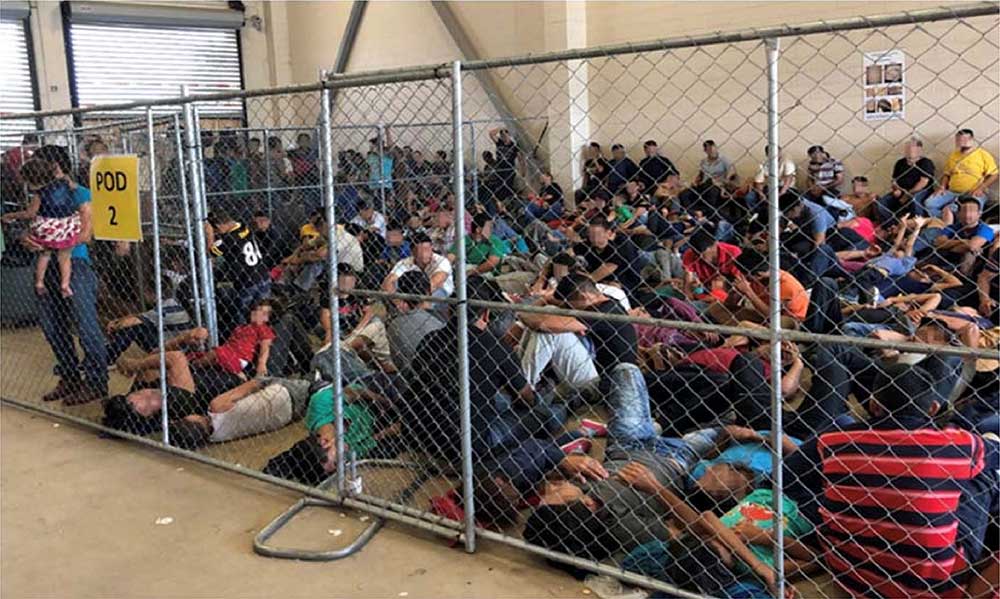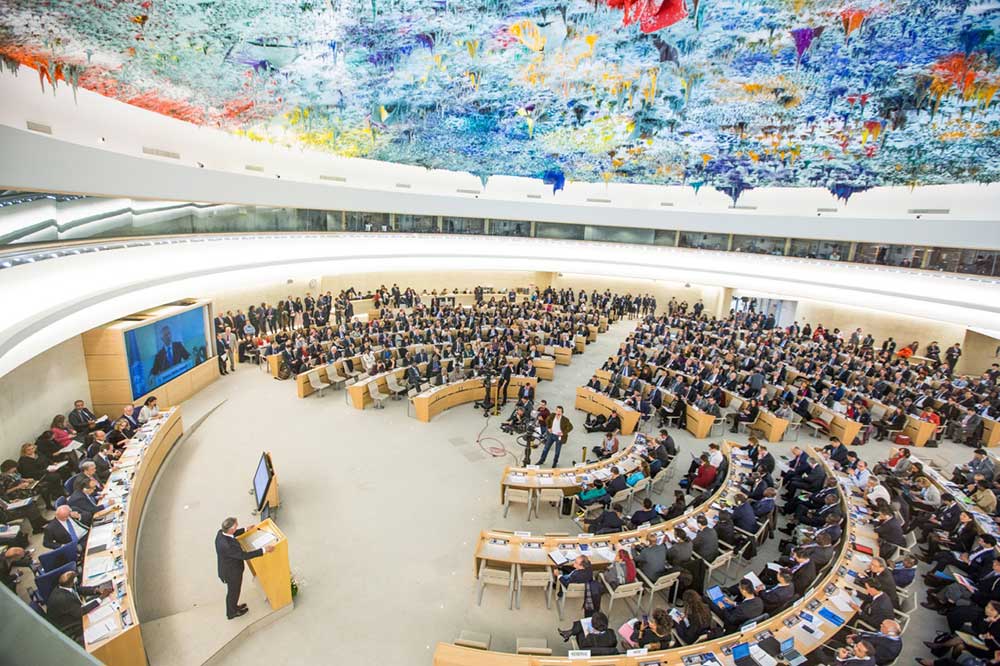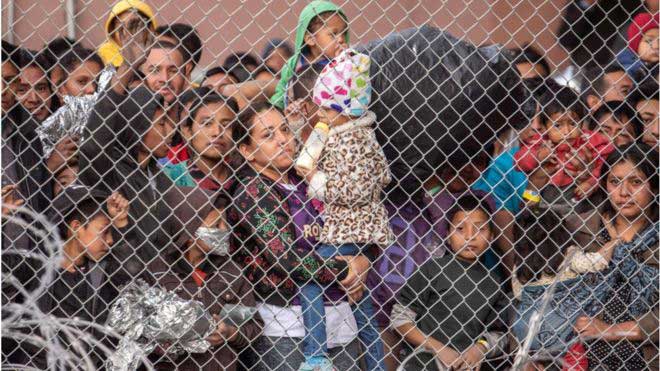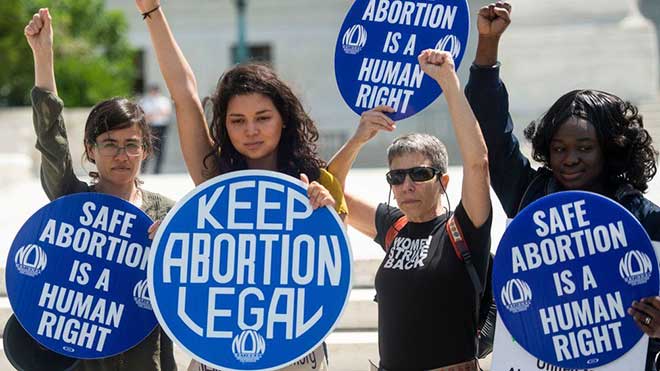By Santa Clara Law students Melina Moss-Vazquez, Katherine Mirassou, Brittany Ricketts, and Prof. Francisco Rivera
Earlier this semester, the International Human Rights Clinic (“IHRC”) submitted a stakeholder report to the United Nations Human Rights Council (“HRC”) in the context of that international body’s Universal Periodic Review (“UPR”) of human rights in the United States. The Clinic’s report focuses on detention of immigrant children and restrictions on access to abortion.
The UPR was created by the United Nations HRC to discuss and evaluate a country’s compliance with its human rights obligations and commitments. Every country or “State” is reviewed every four years, and the United States is up for review in May 2020. The results for the HRC’s most recent previous review of the United States, held in 2015, can be found here. In the context of the UPR, civil society groups such as the IHRC are given the opportunity to submit stakeholder reports. These reports serve to inform the HRC of potential human rights violations by the State under review, and to give recommendations to the States on how to remedy these violations. This allows the HRC to receive information from groups, other than the States themselves, with myriad perspectives and crucial insight into how States are complying with human rights law.
Given the relevance and the urgency of detention of immigrant children and of restrictions on access to abortion, the IHRC has submitted a stakeholder report to the Human Rights Council regarding these issues. The information included in the stakeholder report was collected through the clinic’s open-source research and personal interviews conducted by the clinic. Below is a summary of the main issues addressed in the report.
Detention of Immigrant Children
Aggressive immigration policies by the current Administration have resulted in the detention and separation of thousands of children from their parents, and at least seven children have either died in custody or after being detained by federal immigration agencies at the border. The indefinite detention of immigrant children and forced family separation is torture and violates immigrant children’s rights to life, movement, and health.
The U.S. has separated thousands of immigrant children from their parents to prosecute the adults in criminal courts for crossing the border illegally. According to government experts, children who are experiencing forced separation and detention exhibit symptoms of trauma and increased risk of health issues. These adverse childhood experiences cause developmentally detrimental consequences which can ultimately create a “weak foundation for later learning, behavior, and health.” A report conducted by the inspector general’s office in the U.S. Department of Health and Human services stated, “these children, many already distressed in their home countries or by their journey, showed more fear, feelings of abandonment and post-traumatic stress symptoms than children who were not separated.”
The clinic’s report to the United Nations argues that these immigration policies give rise to torture, as well as cruel, inhuman or degrading treatment of children, and are therefore in violation of international human rights treaties the U.S. has ratified.
Restrictions on Access to Abortion
During the previous UPR, the U.S. received numerous recommendations in order to secure the rights of women to access abortion, and the U.S. has failed to accept any of these recommendations. Instead, the U.S. has further violated a woman’s human right to an abortion by implementing new and more restrictive state and federal laws.
In January 2019, the U.S. expanded the Global Gag Rule (GGR), which bans foreign NGOs from receiving U.S. global health funding if they provide counseling, referrals, services or advocate for safe abortion — even if they do so with private funds. This ban restricts the information about abortion that NGOs can disseminate and women can receive. The U.S. further restricted access to abortion by passing the Hyde Amendment, which blocks federal funding, including Medicaid funding, for abortion services. This act disproportionately denies access to abortion to women of color, immigrants, and people of low income. The U.S.’s implementation of the Helms Amendment, which bans the use of U.S. foreign assistance funds for abortion, and its failure to clarify interpretation to allow for funding for access to abortion for women abroad who are the victims or rape or incest or whose lives are endangered by the pregnancy, results in women dying or being gravely injured because of an unsafe abortion. When abortion access is limited or impossible due to restrictive laws and lack of funding, women are more likely to suffer injury or death because they will seek abortions in unsafe conditions. Individual U.S. states have also passed legislation that restricts access to abortion and criminalizes those seeking and performing abortions, further hindering women’s rights.
Through these actions, the U.S. violates women’s right to life and to health, reproductive health, and family planning; the right to freedom of speech and free association; the right to be free from discrimination; and the right to be free from cruel, inhuman, and degrading treatment.
The Clinic’s report asks the United Nations to issue the following recommendations to the U.S.:
- The U.S. needs to ensure that immigrant children are not deprived of liberty, except as a measure of last resort and for the shortest appropriate period of time.
- The U.S. should adopt measures necessary to guarantee the right to an abortion and to allow assistance to foreign States to support safe abortion services.



